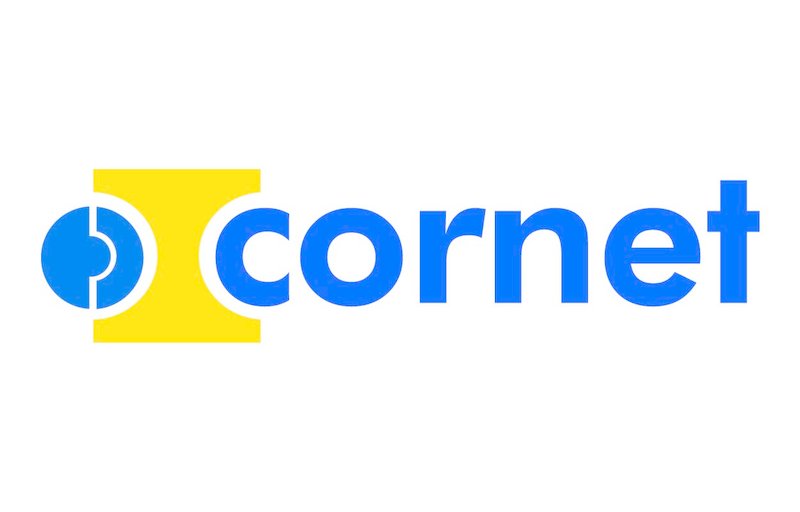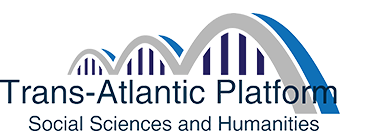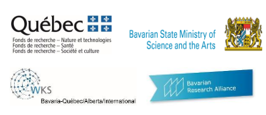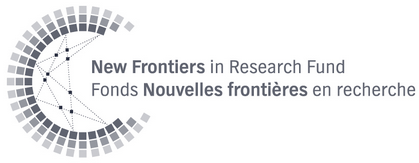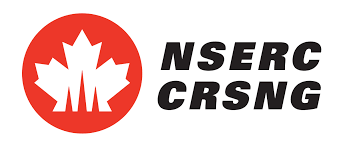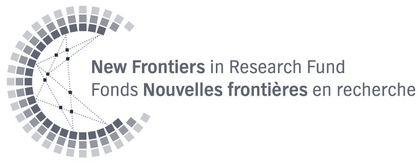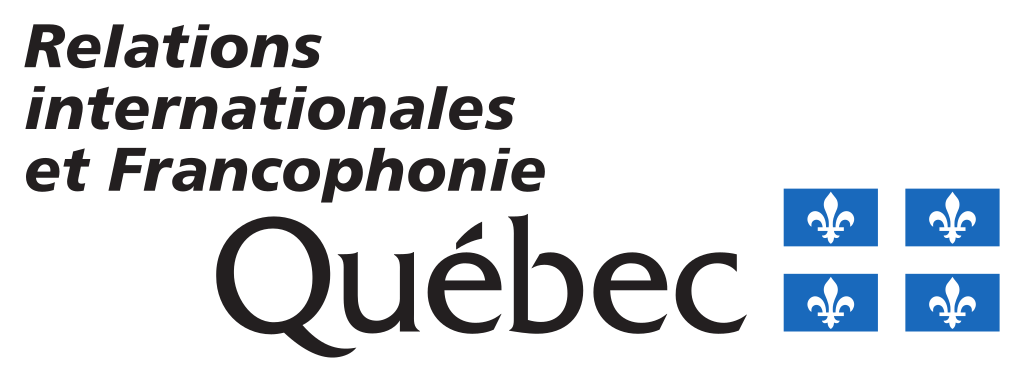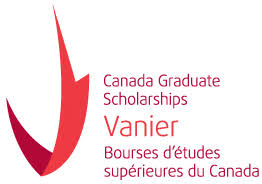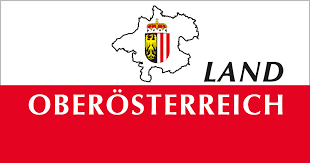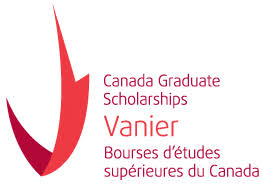Funding Resources for Québec Digital Health Researchers
This page is designed as a resource for researchers from Québec. Here you can find the different funding agencies pages where calls will be published. Also on this page are opportunities for mobility funding, both incoming and outgoing, funding for training young researchers, and fellowship and scholarship opportunities for PhD and graduate students from Québec who want to study in the other RLS regions.
Multilateral Funding
Horizon Europe | European Union
|
Horizon Europe | European Union
Deadline: various, dependent on the specific call Horizon Europe is the EU’s key funding programme for research and innovation with a budget of €95.5 billion. It tackles climate change, helps to achieve the UN’s Sustainable Development Goals and boosts the EU’s competitiveness and growth. The programme facilitates collaboration and strengthens the impact of research and innovation in developing, supporting and implementing EU policies while tackling global challenges. It supports creating and better dispersing of excellent knowledge and technologies. It creates jobs, fully engages the EU’s talent pool, boosts economic growth, promotes industrial competitiveness and optimises investment impact within a strengthened European Research Area. Legal entities from the EU and associated countries can participate. Non-EU RLS partners can participate in Horizon Europe either by providing a unique competence that cannot be found in the EU, or through bilateral agreements between their home countries and the European Union. Participation through own funding is always possible. Visit the Horizon Europe website here. Read about Canada and Horizon Europe here. |
|
Explainable and Robust AI (HORIZON-CL4-2024-HUMAN-03-02) | European Union
Deadline: 18 September, 2024 Value: budget is 15 000 000 EUR; expected number of grants is 2 Projects are expected to contribute to one of the following outcomes:
Trustworthy AI solutions, need to be robust, safe and reliable when operating in real-world conditions, and need to be able to provide adequate, meaningful and complete explanations when relevant, or insights into causality, account for concerns about fairness, be robust when dealing with such issues in real world conditions, while aligned with rights and obligations around the use of AI systems in Europe. Advances across these areas can help create human-centric AI which reflects the needs and values of European citizens and contribute to an effective governance of AI technologies. Multidisciplinary research activities should address all of the following:
View the call here. |
Collective Research Networking (CORNET) Call for Proposals | BMWK, MEI, FAPESP, FFG (Closed)
|
Collective Research Networking (CORNET) Call for Proposals | Québec Ministry of Economy and Innovation
(Please note this call is currently closed, but reopens regularly) Value: depending on CORNET partner (funding organization) CORNET (Collective Research Networking) connects various national programs of pre-competitive joint industrial research worldwide for the benefit of small and medium-sized enterprises. Consortia of business associations and research institutions from at least two participating countries or regions and from all industries and technology fields can submit applications for joint research projects. Submitted proposals should address Collective Research (pre-competitive, serving the need of a wide grouping of companies and ensuring knowledge transfer/dissemination) and are not bound to a specific thematic focus. Funding is allocated according to the rules of the involved national/regional programs. Projects are funded by a grant to the project budget. They should have a maximum duration of 24 months. The following RLS regions would be eligible: Austria (FFG – Austrian Research Promotion Agency), Brazil (FAPESP), Canada-Québec (Ministère de l’Économie et de l’Innovation), and Germany (BMWK). Review the call here. |
T-AP Recovery, Renewal and Resilience in a Post-Pandemic World (RRR) | Trans-Atlantic Platform Social Sciences and Humanities with BMBF, NSF, SSHRC and FRQ-SC, FAPESP, NRF (Closed)
|
T-AP Recovery, Renewal and Resilience in a Post-Pandemic World (RRR) | Trans-Atlantic Platform Social Sciences and Humanities with BMBF, NSF, SSHRC and FRQ-SC, FAPESP, NRF
(Please note this call is now closed, but reopens regularly) Value: dependent on which regions participate, please see call text for more information T-AP works to identify common challenges and promote a culture of collaboration in social science and humanities (SSH) research by offering joint research calls in areas of strong potential for international collaboration. The RRR Call emphasizes the following five main challenges related to COVID-19: (i) reducing inequalities and vulnerabilities; (ii) building a more resilient, inclusive and sustainable society; (iii) fostering democratic governance and political participation; (iv) advancing responsible and inclusive digital innovation; and (v) ensuring effective and accurate communication and media. A focus on these five challenges will leverage the SSH research to understand and address the complex societal effects of COVID-19 pandemic, and inform mitigation efforts, thus contributing to a more equitable, resilient and sustainable future. The participating RLS regions include Bavaria, Georgia, Québec, Sao Paulo, and Western Cape. Call text and program website. |
DFG Scientific Networks │ DFG
|
DFG Scientific Networks │ German Research Foundation
Deadline: Open Value: up to three years, covering travel and maintenance costs for work meetings of network members and for thematically relevant guests, as well as coordination costs and publication costs The aim of the program is to promote multi-year scientific exchange and cooperation on a topic area of choice across locations. Scientific networks offer researchers at all career stages the opportunity to engage in multi-year scientific exchange and cooperation on a topic area of their choice across locations, with the aim of achieving a specific outcome. The network must aim for a specific outcome, e.g. the preparation of joint research papers, a joint publication, impetus for the further development of research methods. Scientific networks may be used: - To promote national and international networking between researchers at an early stage of their careers. Supporting early career researchers is especially important to the DFG. - To promote networking between researchers who want to work on new interdisciplinary or strategic research questions in a results-focused approach and require a flexible organisational framework in which to do so. - To promote networking between researchers who want to address topic areas of a strategic nature where the exchange of ideas at international level appear to be particularly productive. A scientific network consists of a set group of 10 to 20 people, which may also include researchers working abroad. Since the objective is to promote the development of networks across locations, within Germany as well as internationally, members must not all belong to the same research institution; no more than half of the members may be based in research systems outside Germany. Program website. |
EUREKA Eurostars Call│ BMBF and BMWK, NRC-IRAP, FFG, and ESASTAP (Forthcoming)
|
EUREKA Eurostars Call│ BMBF and BMWK, NRC-IRAP, FFG, and ESASTAP
Deadline: Opening 12 July, 2024 with a deadline of 12 September, 2024 Value: dependent per stream and per country- please see the call for specifics Eurostars is a funding instrument that supports innovative SMEs and project partners (large companies, universities, research organisations and other types of organisations) by funding international collaborative R&D and innovation projects. By participating, organisations from 37 countries (eligible RLS-Sciences regions include Bavaria, Québec, Upper Austria, and Western Cape) can access public funding for international collaborative R&D projects in all fields.
Eureka Eurostars Call |
Bilateral Funding
Collaborative Bilateral Research Program Bavaria-Québec- Artificial Intelligence in Health │ STMWK, WKS at BayFOR, FRQ (Closed)
|
Collaborative Bilateral Research Program Bavaria-Québec- Artificial Intelligence in Health │ Scientific Coordination Office Bavaria-Québec/Alberta/International (WKS) on behalf of the Bavarian State Ministry for Science and Art, and the Fonds de Recherche du Quebec
(Please note this call is now closed). Value: 225 000 EUR for the Bavarian team, 225 000 CAD for the Québec team, for a period of three years As science becomes more global and complex, many research questions cannot be addressed without international collaboration between researchers from different sectors. For this reason, Québec and Bavaria have developed a new Bilateral Research Call with the aim of creating a leverage effect for scientific excellence and encouraging researchers from Bavaria and Québec to develop together research projects with novel and unused approaches. These collaborations will allow major scientific breakthroughs, in the short and medium term, by combining and potentiating the strengths, expertise and structural levers of both regions, as well as by promoting the transfer of knowledge. Relevant topics where further development of Artificial Intelligence is an added value to the development of products, tools, interventions or applications in the field of health. The main objective of this program is to establish new collaborative efforts or reinforce existing collaborations to advance knowledge and technology in Artificial Intelligence for Health. The program will also allow to develop a critical mass in Artificial Intelligence research in health and transversal skills. Projects must be structured in such a way as to bring an original added value that researchers, funded by each funding site, could not reach by themselves. Review the call text here. Further information for Bavarian participants can be found here. Further information for Québec participants can be found here. |
Unilateral Funding
Horizon Global Platforms Competition | NFRF (Closed)
|
Horizon Global Platforms Competition | Canada New Frontiers in Research Fund
(Please note this call is currently closed) Value: Maximum of C$250,000 per year (including indirect costs) for up to two years The New Frontiers in Research Fund (NFRF) 2022 Horizon Global Platform competition provides funding for Canadian researchers who are partners on successful projects funded through eligible calls under Horizon Europe. Calls with deadlines before 31 December are eligible. The objective of NFRF 2022 Horizon Global Platform grants is to support Canadian researchers’ participation in international projects. Therefore, funds should be used primarily to support research activities and travel, and not for the acquisition of major infrastructure (more than $7,000) or maintenance of infrastructure. It is expected that Horizon Europe grant funds will also be used to support the involvement of Canadian participants, insomuch as the costs are eligible (e.g., to support travel costs for trainees). It is expected that the Canadian researcher (or research team) will be an integral part of the larger Horizon Europe research team that was awarded a grant. As such, and to demonstrate their importance to the project as a whole, the NPI and/or their primary affiliation, as defined below, must be a signing partner on the Consortium Agreement for the Horizon Europe project. An individual may only apply for funding from a single opportunity across the agencies for the same Horizon Europe project. An application may not be submitted to this funding opportunity if one has been submitted to the Natural Sciences and Engineering Research Council’s (NSERC) Alliance International opportunity for the same project. Visit the program website here. (Please note that the deadline written at the top of the page has been updated). |
PSO International | MEIE (CLosed)
|
PSO-International | Ministère de l'Économie et de l'Innovation
(Please note this call is currently closed, but reopens regularly) Value: depending on project – please see below The Ministry of Economy and Innovation provides funding for institutions in Québec which conduct international research and innovation projects. The program aims at supporting the implementation of international research and innovation initiatives between the university, college, institutional and industrial sectors. The program aims to:
Eligible for funding are:
Eligible projects:
The Department's financial assistance will take the form of a non-repayable, non-recurring contribution up to 50% of the Quebec portion of eligible expenses. Projects must demonstrate a balanced participation of Québec and foreign parties throughout the project: a financial contribution in cash or in kind totaling at least 30% of the project's overall expenses will be required for all foreign project partners (aggregated amount). A letter of support signed by each foreign partner will set out the terms and conditions of participation. Program Website. |
Support for Horizon Global Platforms | FRQ-NT (Closed)
|
FRQ-NT Support to Horizon Global Platforms Competition | Fonds de recherche du Québec – Nature et technologies (FRQNT)
(Please note this call is currently closed) Value: $50,000 maximum per project (including indirect research costs) for 4 years maximum The Fonds de recherche du Québec (FRQ) and the federal Tri-agency New Frontiers in Research Fund (NFRF) are providing funding to support researchers based in Quebec, to join research teams funded under the European platform 2020 Horizon. The support aims to encourage the research community in Quebec to engage in international and interdisciplinary research collaborations through 34 targeted calls on a diversity of themes. Eligibility: To receive the FRQ contribution, the project team must receive a NFRF 2020 Horizon Global Platform grant AND count at least one member who meets the status of a Quebec university researcher, as defined by the Common General Rules (the member can be the principal investigator or a co-investigator). The FRQ will make one- to four-year awards valued at $25,000 (co-investigator) to $50,000 (principal investigator), available to researchers. The maximum duration of the project is four years. FRQ grants are subject to the availability of funds. Indirect research costs are included. NFRF – 2020 Horizon Global Platform grants are valued up to $125,000 per year (including indirect costs) for a maximum of four years. NFRF supports eligible Canadian researchers' participation in international projects on 2020 Horizon Global Platform (see program description of Horizon Global Platforms). Please note that only one submission is necessary to the NFRF. Therefore, the FRQ provisional grant should be entered to the budget of the team submitted to the NFRF. This FRQ support will be granted automatically, if the project is supported by the NFRF, within the limits of the funds available. Program Website. |
NSERC Alliance International | NSERC
|
NSERC Alliance International | National Sciences and Engineering Research Council of Canada
Deadline: applications accepted at any time Value: $25 000 (Catalyst Grants) to $100 000 per year As a permanent funding opportunity of the Natural Sciences and Engineering Research Council of Canada (NSERC), the Alliance International program will support researchers in the natural sciences and engineering at Canadian universities to collaborate internationally. The funding is intended to contribute to solving important research challenges in the natural and engineering sciences and to improve the conditions for training excellent young scientists. Visit the program website here. |
Transformation Competition | NFRF (Current Stage: Invited Proposals)
|
Transformation Competition | Canada New Frontiers in Research Fund
Deadline: Notice of Intent (mandatory) 24 October, 2023; Letter of Intent (mandatory) 10 January, 2024; Full application (by invitation) 5 September 2024 Value: $2,000,000 - $4,000,000 per year (including indirect costs) The Transformation Competition provides funding for large-scale, Canadian-led interdisciplinary research projects that address a major challenge with the potential to realize real and lasting change. Projects may involve any discipline, thematic areas, approaches or subject areas eligible for funding across the three federal research funding agencies (CIHR, NSERC and SSHRC). Projects should engage the full range of disciplines required to achieve the project goals. Proposals must be submitted by teams including a nominated principal investigator (NPI) who should be the most appropriate Canadian researcher to lead an interdisciplinary project of this scale. Other members of the team may include co-principal investigators, co-applicants and/or collaborators from any discipline(s). National, international and cross-sector (private, public or other) collaborations are encouraged, as needed, to ensure that the most appropriate individuals and/or organizations are involved and that team composition reflects best practices in equity, diversity and inclusion. Note: The research team (NPI, co-PIs and co-applicants) identified at the NOI stage should reflect the expertise required to deliver on the project and will be used to help the New Frontiers in Research Fund (NFRF) program team identify requirements for the composition of the review panel. While additional members may be added at the LOI and application stages, those identified at the NOI stage are expected to remain part of the project team. Visit the program website here. |
Call for Quebec-Western Cape Cooperation Projects 2023-2024 | MRIF (Closed)
|
Call for Quebec-Western Cape Cooperation Projects 2023-2024 | Quebec Ministry of International Relations and La Francophonie
(Please note this call is currently closed) Value: $12 500 CA per year, to be awarded only to the Québec partner The objectives pursued by this call for projects are as follows:
Find the link to the call here. |
Incoming Mobility: Researchers
Bringing RLS-Sciences researchers to Québec
Bavaria-Québec Program for Short-Term Research Missions | WKS Bavaria-Québec/Alberta/International
|
Bavaria-Québec Program for Short-Term Research Missions | WKS Bavaria-Québec/Alberta/International
Deadline: Ongoing Value: individual per programme and applicant, please note that approximately 15 mobility supports are awarded annually The objectives of this program for short-term missions are to promote international mobility between Quebec and Bavaria and to foster sustained cooperation between researchers from Bavaria and Quebec in specific research areas, including aerospace. Applications are open to researchers (PostDoc or higher) at Bavarian universities or universities of applied sciences which are planning a research visit in Québec of between one and three months. The research partner must be employed by university or research institute in Québec. Apply here. |
São Paulo Researchers in International Cooperation (SPRINT) | FAPESP
|
São Paulo Researchers in International Cooperation (SPRINT) | São Paulo Research Foundation (FAPESP)
Deadline: 24 June, 2024 Value: dependent on proposal, please see below The objective of the SPRINT programme is to promote the engagement of researchers affiliated to institutions of higher education and research in the State of São Paulo in partnership with researchers abroad in order to: 1) further develop qualitatively the ongoing research projects; and 2) work cooperatively aiming at the elaboration of joint research projects of medium and long term, for submission to FAPESP, by researchers from the State of São Paulo, and to the research funding agencies in the countries of corresponding partners, by their colleagues. SPRINT provides funding for the initial phase of international research collaborations with clear expectations that the next phase will be a presentation, by the researchers from the State of São Paulo, of research proposals in the regular funding lines of FAPESP aiming to continue the research started under SPRINT and the consequently consolidation of the partnership. Foreign partners must provide their own funding through the appropriate partner agencies. Selected projects must last between 12 and 24 months. Joint petitioners should submit their proposals in both countries, using the appropriate forms supplied by the respective agencies. Each proposal will initially be analyzed by the agency in the country of its origin. From now on, in the next calls, partner researchers from any foreign institution can evidence travel resources from their own university or grants awarded by a research funding agency. Thus, it is not necessary that teams neither institutions have an agreement with FAPESP to collaborate. Besides that, interested foreign research institutions might create conditions for receiving proposals in collaboration and funding their teams on scientific missions to research institutions in the state of São Paulo. As a result it is expected that simplifying the flexibility in establishment of collaborations, the qualitative advance in ongoing research projects is promoted and, also, that partner researchers work cooperatively aiming to develop medium and long-term joint research projects. SPRINT mobility grants fund travel and board of research teams over periods up to 2 years and are meant to promote the engagement of researchers linked to higher education and research institutions in the State of São Paulo with partner researchers abroad. FAPESP’s SPRINT calls aim to allow more convenient planning of the submission of proposals for mobility (seed funding) grants. Three calls will be opened annually, with submission deadlines on the last Monday of February, June and October. Review the SPRINT program webpage here. |
PPP Programme for Project Related Personal Exchange | DAAD (Closed)
|
PPP Programme for Project Related Personal Exchange | German Academic Exchange Service (DAAD)
Deadline: please note that this call is currently closed, but reopens regularly Value: Up to €15000 per year, no possibility for extension Through its PPP programmes DAAD supports joint bi-national research projects of a high academic standard in order to strengthen academic relations between a German institution and an institution abroad and to promote cooperative research activities. The provided project funding is intended to cover mobility costs for German participants arising from the research project, and in particular to enable young academics involved in the project to conduct a research stay at the partner institution abroad, thereby supporting them in their international training. An application must present a specific academic research project of high quality, on which the partners from Germany and the foreign partner country intend to work together in an ideally complementary manner. Basic financing of the project (personal and material expenses on both sides) must be ensured. The German funding application and the funding application from the foreign partner must be submitted simultaneously, if not otherwise agreed for the specific country. Applications submitted by only one party will result in exclusion from the selection procedure. The allowance covers all expenditures within the scope of mobility and the stay. Eligible for funding are short-term stays of academics (up to 30 days) and young academics (up to 50 days). On the German side, DAAD provides funding for members of the German research group for stays at the foreign partner institution if no other arrangement was made with the foreign partner institution. Young academics are defined as junior researchers currently completing their doctorate and academics who completed their doctorate no more than five years ago. DAAD's PPP programme is connected with the RLS regions of Georgia, Québec, and São Paulo. Programme website |
Incoming Mobility: Students
Bringing RLS-Sciences students to Québec
Programme to Increase the Mobility of German Students | DAAD (Forthcoming)
|
Programme to Increase the Mobility of German Students | German Academic Exchange Service (DAAD)
Deadline: this programme will reopen on 12 June, deadline is yet unknown Value: please see below This program provides stipends for visits abroad for a period of up to six months allowing for an increase in the mobility of German students, including doctoral candidates. This provides higher education institutes with the opportunity to prioritize international mobility of their students and to offer them a variety of mobility measures with fitting funding instruments. This program should also offer students the opportunity for a stay abroad which is outside of the framework of the structured DAAD funding programs. During the period from January 1 - December 31 of the year following the application activities worldwide may be funded in the form of partial stipends (for study abroad), support for travel costs (for study tours), course fees and subsidies towards tuition and costs of living for:
The institutes can apply for a one-time lump sum supervision grant of € 250 per supported scholar; the total of the supervision grants is not to exceed ten percent of the total funding. Programme Website. |
Mitacs Accelerate International | Mitacs
|
Mitacs Accelerate International | Mitacs
Deadline: Applications accepted at any time. Applicants should submit their applications approximately 16 weeks prior to the start of the project to ensure enough time for adjudication, filing of appropriate documentation, and travel and accommodation arrangements. Value: $15,000 CAD for 16-24 weeks *Please note, that only Québec students may apply to do an internship in Georgia Mitacs Accelerate International supports bilateral research collaborations between interns, universities, and industry partners, both in Canada and abroad. Interns at Canadian universities can undertake projects in Mitacs’s partner countries. Interns from Mitacs's partner countries can undertake projects in Canada. Accelerate International projects can be undertaken in many Mitacs partner countries and regions, among others in the US, Brazil, China and Germany. Mitacs Accelerate offers the following benefits to participating universities and students: -Mitacs will award successful applicants $15,000 CAD in funding to cover the direct costs of research. Funding will be in the form of a research grant to the home university academic supervisor; -All academic disciplines are eligible; -Simple and quick application process with results typically announced in six weeks; -Funding is provided to support the student’s research; -Students and faculty gain real-world and international exposure: apply the latest tools and innovations to real issues; -International research collaborations are strengthened. Mitacs Accelerate offers the following benefits to participating industry partners: -Applications are peer reviewed to ensure high-quality research -Increased innovation: participants gain novel solutions to research challenges -Mitacs matches the $7,500 CAD industry partner contribution Industry Partner Eligibility The international industry partner for the Partnership Award must be a for-profit company in any country where the student can undertake the research project. Accelerate International projects can be undertaken in Brazil, China, Germany and the US (among others). Visit the program website here. |
International Internships Programme | FRQ-NT (Closed
|
International Internships Programme | Fonds de recherche du Québec- Nature et technologies
(Please note this call is currently closed) Value: The scholarship is an allowance of $ 2,500 CAD per month. The maximum value of a scholarship or both of the scholarships is $ 15,000 CAD. Duration: 2 to 6 months *Please note, that only Québec students may apply to do an internship in Georgia The FRQNT's (Fonds de recherche du Québec – Nature et technologies) international internship aims to foster international mobility of students whose research activities are part of the scientific program of a strategic cluster funded by the FRQNT. The internship is a supplementary tool available to a strategic cluster to strengthen its position at the international level through research projects and partnerships that have already been established or which are under development. Applicants The international internship is intended for Master's or doctoral students enrolled full-time in a Quebec university or in an university outside Québec who meets the requirements of their program. The proposed research outlined in the application as part of the internship must be part of the scientific program of the strategic cluster. In a first step, the strategic cluster recommends a candidate and then the candidate can apply for the scholarship. Find the list of Strategic Clusters here. Eligibility conditions All of the strategic clusters supported by the FRQNT may submit an application to this program. The applicant proposed by the strategic cluster must meet all of the eligibility requirements listed here after. For full-time students enrolled in a Québec university: The applicant must have Canadian citizenship, permanent resident status in Canada, or foreign student status with a valid study permit to study in Quebec. For foreign students enrolled in an university outside Québec: The applicant must have valid study permits or visas for the entire duration of the internship. The applicant can't be enrolled in a co-degree from more than one institution including a Québec university. For the students enrolled in a co-degree see the rules of the Frontenac program. Location of the internship: The internship must take place outside Quebec for students enrolled in a Quebec university. The internship must occur in Quebec for students from abroad. Start date of the internship: The internship must start no later than September 30th, 2020. Restrictions: Students who are jointly supervised by a researcher in a foreign university (co-degree) are not eligible to apply for an international internship scholarship to visit one of their home universities Application process Candidates interested within this program must file their application within their strategic cluster (see list on FRQNT's Web Site) Validate the list of documents required for this application with the specific strategic cluster. The strategic clusters which recommend a candidate must fill the specific form available on FRQNT's Web site as well as transmit it electronically. The form includes the complete addresses of the student, the academic supervisor, and the internship supervisor. A brief description of the nature of the internship is also required. The strategic clusters must also submit the selection committee report that states the results for each of the three criteria in effect, the assessment process and the names of the committee members. This report should briefly explain the efforts taken to ensure a fair and inclusive selection process, thus fostering the support of diversified interns.The strategic clusters must also send in the electronic form, a letter signed by the supervisor of the student specifying the start and end dates of the internship. Any internship application must be filed by the strategic cluster and approved by the FRQNT before the leaving of the trainee. Limited number of applications Each strategic cluster may generally submit up to two applications until the contest deadline. In no case should the total financial assistance of the two candidates exceed the total amount of $ 15,000. This limit can be re-examined and increased at all time until the contest deadline. Each strategic cluster can propose the application one foreign students enrolled outside Québec maximum, so they can pursue their internship within the strategic cluster in Québec The rules are the same for evaluating the candidate, the duration of his or hers internships and the value of the scholarship apply. The application of a foreign student enrolled outside Québec doesn't modify the total limit of two candidates and the total amount of 15 000$ per cluster. Learn more here.Merit scholarship program for foreign students (PBEEE) | Fonds de recherche du Québec – Nature et technologies (FRQNT) (Please note this call is now closed) Value: dependent on program stream- please see below. The objective of the Merit Scholarship Programs for Foreign Students (PBEEE) is to support the internationalization of research activities in Québec's institutions of higher education, to attract the best foreign researchers and students, and to promote Québec universities and College Centers for the Transfer of Technologies (CCTT), abroad. Candidates must be preselected by a university, the Réseau Trans-Tech (a CCTT), TERI University, the SRE or CONACYT. There are three streams within the program: Doctoral research, post-doctoral research, or Short-term research or professional development. Universities can recommend four candidates per year for each of these three components. There are no quotas per country. The Réseau Trans-tech can recommend four candidates for Postdoctoral scholarships and Short-term research or professional development scholarships. Doctoral research component Candidates are eligible for doctoral merit program scholarships from MEESR in the first nine sessions of their doctoral studies. All doctoral sessions, funded or unfunded, completed before the scholarship takes effect, are used in calculating the eligibility period. The maximum duration of the scholarship is three years (nine sessions), with a possible extension of up to 12 months, for up to $25,000 (Canadian) per year Postdoctoral component Postdoctoral scholarships are intended for researchers who have obtained their degree no more than two years before the deadline of the competition or who submitted their dissertation by the deadline for the beginning of scholarship use. Postdoctoral research must be conducted in an institution other than the one that granted the Doctorate. The applicant's doctoral supervisors and co-supervisors may not act as his/her postdoctoral supervisor, even if they have changed institutions. The duration of this scholarship is for up to one year, for $35,000 (Canadian). This scholarship is not renewable. Short-term research or professional development component Short-term research or professional development scholarships are intended for technical and university students (option A) or researchers who have completed a doctorate no more than five years before the deadline for the competition (option B). The research or professional development must be conducted in an institution other than the one at which the student was enrolled when he or she applied. The duration of this scholarship is for up to four months, for $3,000 (Canadian) per month. The scholarship is not renewable. Visit the programme website here. |
Merit scholarship program for foreign students (PBEEE) | FRQ-NT (Closed)
|
Merit scholarship program for foreign students (PBEEE) | Fonds de recherche du Québec – Nature et technologies (FRQNT)
(Please note this call is now closed) Value: dependent on program stream- please see below. The objective of the Merit Scholarship Programs for Foreign Students (PBEEE) is to support the internationalization of research activities in Québec's institutions of higher education, to attract the best foreign researchers and students, and to promote Québec universities and College Centers for the Transfer of Technologies (CCTT), abroad. Candidates must be preselected by a university, the Réseau Trans-Tech (a CCTT), TERI University, the SRE or CONACYT. There are three streams within the program: Doctoral research, post-doctoral research, or Short-term research or professional development. Universities can recommend four candidates per year for each of these three components. There are no quotas per country. The Réseau Trans-tech can recommend four candidates for Postdoctoral scholarships and Short-term research or professional development scholarships. Doctoral research component Candidates are eligible for doctoral merit program scholarships from MEESR in the first nine sessions of their doctoral studies. All doctoral sessions, funded or unfunded, completed before the scholarship takes effect, are used in calculating the eligibility period. The maximum duration of the scholarship is three years (nine sessions), with a possible extension of up to 12 months, for up to $25,000 (Canadian) per year Postdoctoral component Postdoctoral scholarships are intended for researchers who have obtained their degree no more than two years before the deadline of the competition or who submitted their dissertation by the deadline for the beginning of scholarship use. Postdoctoral research must be conducted in an institution other than the one that granted the Doctorate. The applicant's doctoral supervisors and co-supervisors may not act as his/her postdoctoral supervisor, even if they have changed institutions. The duration of this scholarship is for up to one year, for $35,000 (Canadian). This scholarship is not renewable. Short-term research or professional development component Short-term research or professional development scholarships are intended for technical and university students (option A) or researchers who have completed a doctorate no more than five years before the deadline for the competition (option B). The research or professional development must be conducted in an institution other than the one at which the student was enrolled when he or she applied. The duration of this scholarship is for up to four months, for $3,000 (Canadian) per month. The scholarship is not renewable. Visit the programme website here. |
Banting Postdoctoral Fellowships Program | Government of Canada Tri-Agency Program
|
Banting Postdoctoral Fellowships Program | Government of Canada Tri-Agency Program
Deadline: 17 September, 2024 Value: $70,000 per year The Banting Postdoctoral Fellowships program provides funding to postdoctoral national and international applicants who will positively contribute to the country’s economic, social and research-based growth. Eligible for application are both Canadian and foreign citizens in three areas of research (Health research, Natural sciences and/or engineering, Social sciences and/or humanities). Eligibility criteria apply to both candidates and host institutions and can be found on the program website. Important:
Visit the website here |
Vanier Canada Graduate Scholarships Program | Government of Canada Tri-Agency Program
|
Vanier Canada Graduate Scholarships Program | Government of Canada Tri-Agency Program
Deadline: depending on nominating institution Value: $50,000 per year for three years during doctoral studies The Vanier CGS program aims to attract and retain world-class doctoral students from Canada and foreign countries by supporting students who demonstrate both leadership skills and a high standard of scholarly achievement in graduate studies in the social sciences and humanities, natural sciences and/or engineering and health. Candidates must be nominated by a Canadian institution with a quota to host Vanier scholars. They should only seek a nomination from the institution at which they want to study. Eligibility criteria apply to both candidates and nominating institutions and can be found on the program website. Visit the website here. |
Internationalization Program for Students (IPS) | Government of Upper Austria
|
Internationalization Program for Students (IPS) | Government of Upper Austria
Deadline: applications must be submitted before the start of the stay abroad Value: dependent upon destination (upper funding limit per applicant is 1480 EUR incl. travel allowance) The Government of Upper Austria has created the Internationalization Program for Students as a successor programme to the Kepler Internationalization Program. Funding is provided for students and graduates of Upper Austria to complete study visits, courses or internships abroad in non-German speaking countries for a maximum of ten months. Students who have had their main place of resident in Upper Austria for at least one year prior to submitting their application, and who have been admitted to regular studies at Johannes-Kepler-Universität, Fachhochschulen Oberösterreich, Pädagogischen Hochschule Oberösterreich, and Privaten Pädagogischen Hochschule der Diözese Linz or at other universities and colleges in Upper Austria or with a successfully completed diploma or master's degree at the above-mentioned institutions can apply. Program website. |
Outgoing Mobility: Researchers
Support for Québec researchers to go abroad
Gastdozentenprogramm | DAAD (Closed)
|
Gastdozentenprogramm | German Academic Exchange Service (DAAD)
Deadline: please note this call is currently closed, but reopens regularly Value: dependent on salary and length of stay- please see below The Foreign Guest Lecturer Program ("Förderung ausländischer Gastdozenten zu Lehrtätigkeiten an deutschen Hochschulen") serves to enhance the internationalization of the German higher education institutes and improve the international dimension of teaching. The two models of this program differentiate between an agreement with an individual guest lecturer or with a Visiting Chair which contributes guest lectures on a consecutive basis. The cooperation should result in the internationalization of courses and, in the case of a Visiting Chair, more structural measures for sustainable internationalization, which could be embedded in the development of a study program. The teaching commitment should approach but is not required to be the equivalent of a standard lecturer position at a German university. A financial contribution by the higher education institution to the salary of the guest lecturer is preconditioned. Additional financial support will be considered positively during the selection process. The remaining will be funded by DAAD. In addition, mobility support and funding towards conference participation is available. The salary for professors in Bavaria can be found in category W of the standardized tables for the public service. Find further information or apply here. |
Bavaria-Québec Program for Short-Term Research Missions | BayFOR and FRQ-S (Closed)
|
Bavaria-Québec Program for Short-Term Research Missions | Bavarian Research Alliance and Fonds de recherche du Québec Santé
(Please note this call is currently closed) Value: Up to $2 500 for transportation plus daily living allowance, for 1-3 months The objectives of this program for short-term missions are to promote international mobility between Quebec and Bavaria and to foster sustained cooperation between researchers from Bavaria and Quebec in specific research areas, including digital technologies. The bilateral aspect of this program funds research visits from universities and research institutions in Québec for a period of one to three months at a university or research institution in Bavaria. This program is open to: - FRQNT researchers: university researchers (CHU and CHUN) or institutional researchers (CE) - FRQS researchers: independent investigators and independent clinical investigators. For a definition of each status, consult the FRQ Common General Rules. The researchers must: - Be affiliated with a Quebec university - Be Canadian citizens or permanent residents as defined in section 2.1 of the FRQ Common General Rules - Be domiciled in Québec - Have received an invitation letter from a researcher from Bavaria affiliated with a university or a university of applied sciences that receives funding from the Bavarian government, or a researcher from KU Eichstätt-Ingolstadt, ESFH, or KSFH. Visit the program website here. |
São Paulo Researchers in International Cooperation (SPRINT) | FAPESP
|
São Paulo Researchers in International Cooperation (SPRINT) | São Paulo Research Foundation (FAPESP)
Deadline: 26 February, 2024 Value: dependent on proposal, please see below The objective of the SPRINT programme is to promote the engagement of researchers affiliated to institutions of higher education and research in the State of São Paulo in partnership with researchers abroad in order to: 1) further develop qualitatively the ongoing research projects; and 2) work cooperatively aiming at the elaboration of joint research projects of medium and long term, for submission to FAPESP, by researchers from the State of São Paulo, and to the research funding agencies in the countries of corresponding partners, by their colleagues. SPRINT provides funding for the initial phase of international research collaborations with clear expectations that the next phase will be a presentation, by the researchers from the State of São Paulo, of research proposals in the regular funding lines of FAPESP aiming to continue the research started under SPRINT and the consequently consolidation of the partnership. Foreign partners must provide their own funding through the appropriate partner agencies. Selected projects must last between 12 and 24 months. Joint petitioners should submit their proposals in both countries, using the appropriate forms supplied by the respective agencies. Each proposal will initially be analyzed by the agency in the country of its origin. From now on, in the next calls, partner researchers from any foreign institution can evidence travel resources from their own university or grants awarded by a research funding agency. Thus, it is not necessary that teams neither institutions have an agreement with FAPESP to collaborate. Besides that, interested foreign research institutions might create conditions for receiving proposals in collaboration and funding their teams on scientific missions to research institutions in the state of São Paulo. As a result it is expected that simplifying the flexibility in establishment of collaborations, the qualitative advance in ongoing research projects is promoted and, also, that partner researchers work cooperatively aiming to develop medium and long-term joint research projects. SPRINT mobility grants fund travel and board of research teams over periods up to 2 years and are meant to promote the engagement of researchers linked to higher education and research institutions in the State of São Paulo with partner researchers abroad. FAPESP’s SPRINT calls aim to allow more convenient planning of the submission of proposals for mobility (seed funding) grants. Three calls will be opened annually, with submission deadlines on the last Monday of February, June and October. Review the SPRINT program webpage here. |
Visiting Researcher Program | FAPESP
|
Visiting Researcher Program | São Paulo Research Foundation (FAPESP)
Ongoing Call Value: for visits less than 30 days, please see this table; for visits longer than 30 days, please see this table The Visiting Researcher Program offers full or partial support for the hosting of experienced investigators, associated with foreign research institutions, who will work in a research institution in the State of São Paulo for a period from 2 weeks to a maximum (non-extendable) period of 12 months. The visiting researcher must hold PhD degree and have an outstanding record of scientific accomplishments. This program aims to promote collaboration between investigators in the State of São Paulo and their colleagues abroad for the development of ongoing research projects or for assisting the launching of new collaborations. Funds cannot be used for the development of a research project, but joint research efforts conducted by the Visiting Researcher and their host may enhance a proposal. When the duration of the visit is less than 1 month, the maintenance will be supported in the form of per diem payments for the visitor to the threshold value of the monthly maintenance defined by FAPESP based on the visitor's curriculum. The aid does not include the payment of management fees. When the duration of the visit is more than 30 days, the monthly maintenance for the visitor will be supported in the form of aid Visiting Researcher with value defined by FAPESP based on the visitor's curriculum and other characteristics of the submitted proposal. Visit the webpage here. (Português) |
Mitacs Entrepreneur International | MItacs
|
Mitacs Entrepreneur International | Mitacs
Deadline: open call Value: up to 5 000 CAD travel grant to support eligible business travel costs to connect with a host incubator in an eligible new target market Mitacs Entrepreneur International offers a travel grant to Canadian start-ups that are housed in an incubator or accelerator linked to an academic institution to connect them with host incubators abroad and explore new business development opportunities in international markets. The Mitacs Entrepreneur International program invites application submissions on a year-round basis. Canadian start-ups receive a travel grant to support eligible business travel costs, of up to $5,000 to connect with a host incubator in an eligible new target market. Through the program, start-ups:
Participants submit their application and budget detailing a travel plan that supports growth goals in at least one of the following categories:
Successful applicants receive a travel grant to support eligible business travel costs for up to two (2) full-time equivalent employees, founders, or owners:
Link |
Outgoing Mobility: Students
Support for Québec students to go abroad
RISE Professional: Research Internships in Science and Engineering | DAAD (Closed)
|
RISE Professional: Research Internships in Science and Engineering | German Federal Foreign Office and German Academic Exchange Service (DAAD)
(Please note this call is currently closed, but reopens annually with an autumn deadline) Value: dependent on education level (bachelor, master, PhD and whether you are enrolled as a student during the internship or not- please see program page for specific details) RISE Professional offers summer research internships in Germany to Master’s and Ph.D. students from North America at companies and non-university research institutions with strong relations to industry. The program is open for students in the field of biology, chemistry, physics, earth sciences, engineering or a closely related field. Participants receive a scholarship from DAAD and an additional stipend from their host company/institution to help cover living expenses if they are enrolled in a post-secondary institution. Recent graduates will receive minimum wage from their host company/institution. Funding is possible for a period of six months in summer and/or fall (May-December). Geman language requirements vary according to the internship placement. Recent graduates are eligible to apply in certain cases. Programme Website. |
Stipend and Support Program for International PhD Candidates and PostDocs | DAAD (Closed)
|
Stipend and Support Program for International PhD Candidates and PostDocs | German Federal Foreign Office and German Academic Exchange Service (DAAD)
(Please note this call is currently closed) Value: Up to € 25,000 per university per year, for a maximum of three years The Stipend and Support Program for International Doctoral Candidates and PostDocs / "Stipendien- und Betreuungsprogramm für ausländische Doktoranden und Postdoktoranden" (STIBET Doktoranden), which is funded by the Federal Foreign Office, aims to support the development of tailored measures which are to be integrated within a supervision concept. The funding for teaching and research assistants aims to integrate the international doctoral candidates and young researchers in the German institute of higher education and to gain teaching and research experience. The funding for support and supervision for STIBET Scholars aims to provide general and subject-related support for doctoral candidates and postdoctoral fellows. This funding is to be used to contribute to the orientation of the foreigners within their studies, at the university and at the location; to the subject-related supervision of their studies or research stay; to inform them about Germany; to bring them in contact with the members of the university and German residents; to exchange ideas about their home countries; and to prepare them to return to their home countries. Additionally, there are multiple scholarships available to the international doctoral candidates attending the German university. The scholarship funding is to be used towards the following goals:
Programme Website. |
Study Visits / Seminars for Groups of Foreign Students to Germany | DAAD
|
Study Visits / Seminars for Groups of Foreign Students to Germany | German Academic Exchange Service (DAAD)
Call open three times annually: 1 February for travel from 1 June; 1 May for travel from 1 September; and 1 November for travel from 1 March Value: 50€ per day per participant, plus other costs (please see below); funding available for a maximum of 12 days The DAAD funds Study Visits and Study Seminars and Practicals in the Federal Republic of Germany, financed by the Federal Foreign Office, for groups of foreign students under the direction of university teachers. The main goals of the programme are: • to establish and cultivate contacts between German and foreign universities, • to impart subject-related knowledge by arranging corresponding visits at not less than two German universities, subject-related tours and information meetings (Study Visits) respectively by organising subject-related seminars and practicals in the field of higher education (e.g. specialist courses, block seminars, workshops) at the invitation of a German university which is then also responsible for arranging seminars and practicals in academia, business and industry and, possibly, in public institutions (Study Seminars and Practicals), • to encourage subject-specific contact with German students and researchers, • to enable foreign students to gain a better understanding of economic, political and cultural life in Germany. Preferable are subject-related activities. This part of the visit must not make up more than one third of the stay. Applications are open to university teachers from public and state-recognised German universities (Study Seminars and Practicals) or from foreign universities (Study Visits). Annual funding for applicants, departments or institutes is not possible. A maximum of one application every second calendar year can be considered per department, institute and applicant. Funding can be provided for Study Visits and Study Seminars and Practicals of students who are enrolled in their second semester or higher in a degree programme at a foreign university and who travel under the guidance and direction of a university teacher. 1. Study Visits A) Lump sum-financed for groups from EU countries, Canada, and the United States: The trip must be independently organised and carried out by the group respectively by the university teacher who submitted the application. The DAAD pays a lump sum of 50 euros per person and day. B) Organised by the DAAD for groups from other countries: The DAAD plans the programme design. Wishes and preferences stated in the programme description and in the schedule will, as far as possible, be taken into consideration. However, it is likely that cuts or changes will be made to the programme due to decisions reached by the selection committee. The DAAD provides a travel guide fluent in the agreed group language who is responsible for the smooth running of and compliance with the programme drawn up by DAAD Head Office. The DAAD pays the subsistence costs (meals and accommodation) for the group (including for the group leader) during the funded period. 2. Study Seminars and Practicals (applies to groups from worldwide) The DAAD grant is provided in the form of project funding through payment of a flat-rate sum of 50 euros per participant and day in order to subsidise the group’s travel and subsistence costs. Groups must be made up of at least 10 participants and must not, as a rule exceed 15 persons. One university teacher has to accompany the group and may additionally be funded. Study Visits and Study Seminars and Practicals should last no less than 7 days. Funding is available for a maximum of 12 days (including travel days), although the stays may last longer. The DAAD does not pay any international travel costs, but does take out health, accident and public/private liability insurance for each funded group. Programme Website. |
Mitacs Accelerate International | Mitacs
|
Mitacs Accelerate International | Mitacs
Deadline: Applications accepted at any time. Applicants should submit their applications approximately 16 weeks prior to the start of the project to ensure enough time for adjudication, filing of appropriate documentation, and travel and accommodation arrangements. Value: $15,000 CAD for 16-24 weeks Mitacs Accelerate International supports bilateral research collaborations between interns, universities, and industry partners, both in Canada and abroad. Interns at Canadian universities can undertake projects in Mitacs’s partner countries. Interns from Mitacs's partner countries can undertake projects in Canada. Accelerate International projects can be undertaken in many Mitacs partner countries and regions, among others in the US, Brazil, China and Germany. Mitacs Accelerate offers the following benefits to participating universities and students: -Mitacs will award successful applicants $15,000 CAD in funding to cover the direct costs of research. Funding will be in the form of a research grant to the home university academic supervisor; -All academic disciplines are eligible; -Simple and quick application process with results typically announced in six weeks; -Funding is provided to support the student’s research; -Students and faculty gain real-world and international exposure: apply the latest tools and innovations to real issues; -International research collaborations are strengthened. Mitacs Accelerate offers the following benefits to participating industry partners: -Applications are peer reviewed to ensure high-quality research -Increased innovation: participants gain novel solutions to research challenges -Mitacs matches the $7,500 CAD industry partner contribution Industry Partner Eligibility The international industry partner for the Partnership Award must be a for-profit company in any country where the student can undertake the research project. Accelerate International projects can be undertaken in Brazil, China, Germany and the US (among others). Visit the program website here. |
Globalink Research Award | Mitacs (CLosed)
|
Globalink Research Award | Mitacs
(Please note this programme is currently restricted to only specific partner institutions, as so can only be applied in a case-by-case situation) Value: $6,000 CAD for 12-24 weeks The Globalink Research Award provides an opportunity for faculty at Canadian universities to strengthen existing international research collaborations and connect with colleagues around the world through the mobility of senior undergraduate and graduate students. The Mitacs Globalink Research Award provides funding to support senior undergraduate and graduate student research projects abroad. Student recipients of the Globalink Research Award will develop research skills, cultural fluency, and professional networks, becoming part of Canada’s generation of global innovators. The benefits include: - A $6,000 research award to the Canadian supervisor to support student travel and accommodation expenses, research related expenses, and student stipend. - Open to all disciplines - For joint research projects with academic collaborators for a minimum of 12 weeks to a maximum of 24 weeks abroad Student Eligibility (please see program website for full eligibility conditions): - Be a Canadian citizen, permanent resident, or international student. Students cannot undertake a research project at an institution where they have previously completed a degree or been employed. - Effective September 30, 2015, students in Canada on a study permit cannot undertake a research project in a country where they hold citizenship. Students with Canadian citizenship and permanent residents can undertake research in any partner country, regardless of additional citizenship status. - Be registered for full-time studies at a Canadian university as a senior undergraduate student or graduate student. Program website. |
International Internships Programme | FRQ-NT (Closed)
|
International Internships Programme | Fonds de recherche du Québec- Nature et technologies
(Please note this call is currently closed) Value: The scholarship is an allowance of $ 2,500 CAD per month. The maximum value of a scholarship or both of the scholarships is $ 15,000 CAD. Duration: 2 to 6 months The FRQNT's (Fonds de recherche du Québec – Nature et technologies) international internship aims to foster international mobility of students whose research activities are part of the scientific program of a strategic cluster funded by the FRQNT. The internship is a supplementary tool available to a strategic cluster to strengthen its position at the international level through research projects and partnerships that have already been established or which are under development. Applicants The international internship is intended for Master's or doctoral students enrolled full-time in a Quebec university or in an university outside Québec who meets the requirements of their program. The proposed research outlined in the application as part of the internship must be part of the scientific program of the strategic cluster. In a first step, the strategic cluster recommends a candidate and then the candidate can apply for the scholarship. Find the list of Strategic Clusters here. Eligibility conditions All of the strategic clusters supported by the FRQNT may submit an application to this program. The applicant proposed by the strategic cluster must meet all of the eligibility requirements listed here after. For full-time students enrolled in a Québec university: The applicant must have Canadian citizenship, permanent resident status in Canada, or foreign student status with a valid study permit to study in Quebec. For foreign students enrolled in an university outside Québec: The applicant must have valid study permits or visas for the entire duration of the internship. The applicant can't be enrolled in a co-degree from more than one institution including a Québec university. For the students enrolled in a co-degree see the rules of the Frontenac program. Location of the internship: The internship must take place outside Quebec for students enrolled in a Quebec university. The internship must occur in Quebec for students from abroad. Start date of the internship: The internship must start no later than September 30th, 2020. Restrictions: Students who are jointly supervised by a researcher in a foreign university (co-degree) are not eligible to apply for an international internship scholarship to visit one of their home universities Application process Candidates interested within this program must file their application within their strategic cluster (see list on FRQNT's Web Site) Validate the list of documents required for this application with the specific strategic cluster. The strategic clusters which recommend a candidate must fill the specific form available on FRQNT's Web site as well as transmit it electronically. The form includes the complete addresses of the student, the academic supervisor, and the internship supervisor. A brief description of the nature of the internship is also required. The strategic clusters must also submit the selection committee report that states the results for each of the three criteria in effect, the assessment process and the names of the committee members. This report should briefly explain the efforts taken to ensure a fair and inclusive selection process, thus fostering the support of diversified interns.The strategic clusters must also send in the electronic form, a letter signed by the supervisor of the student specifying the start and end dates of the internship. Any internship application must be filed by the strategic cluster and approved by the FRQNT before the leaving of the trainee. Limited number of applications Each strategic cluster may generally submit up to two applications until the contest deadline. In no case should the total financial assistance of the two candidates exceed the total amount of $ 15,000. This limit can be re-examined and increased at all time until the contest deadline. Each strategic cluster can propose the application one foreign students enrolled outside Québec maximum, so they can pursue their internship within the strategic cluster in Québec The rules are the same for evaluating the candidate, the duration of his or hers internships and the value of the scholarship apply. The application of a foreign student enrolled outside Québec doesn't modify the total limit of two candidates and the total amount of 15 000$ per cluster. Learn more here. |
Banting Postdoctoral Fellowships Program | Government of Canada Tri-Agency Program (Closed)
|
Banting Postdoctoral Fellowships Program | Government of Canada Tri-Agency Program
Deadline: please note this call is currently closed, but reopens annually with an autumn deadline Value: $70,000 per year *Please note that Canadian citizens may only apply to do studies abroad, if they have obtained their PhD or PhD-equivalent at a Canadian university The Banting Postdoctoral Fellowships program provides funding to postdoctoral national and international applicants who will positively contribute to the country’s economic, social and research-based growth. Eligible for application are both Canadian and foreign citizens in three areas of research (Health research, Natural sciences and/or engineering, Social sciences and/or humanities). Eligibility criteria apply to both candidates and host institutions and can be found on the program website. Important:
Visit the website here |

